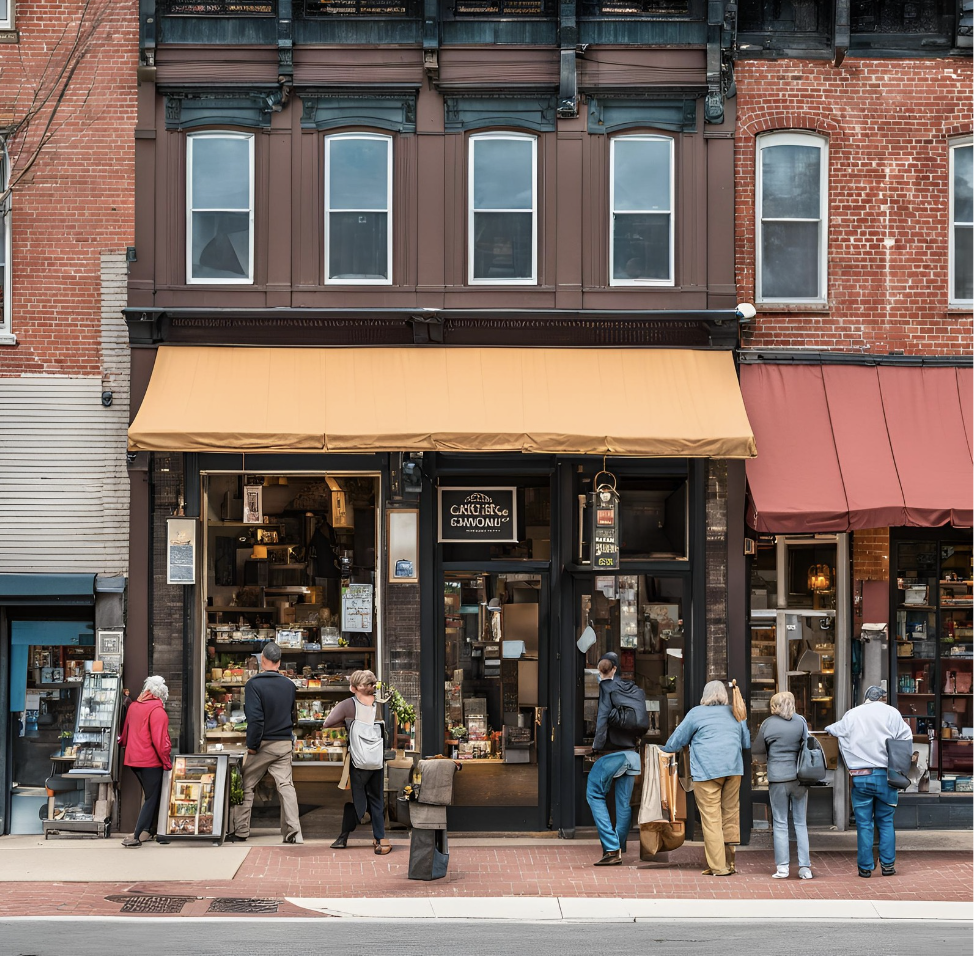Why Shopping Locally Benefits the Local Economy

Shopping locally is more than a feel-good gesture—it's a powerful way to support the economic health of your community. When you buy from local businesses, you contribute to a sustainable, thriving economy that benefits not just local owners, but also the broader community. In fact, studies show that shopping locally can keep up to **three times the dollars** spent in the community compared to shopping at national or international chains. Here’s why:
1. More Money Stays in the Community
When you spend money at a locally owned business, a greater percentage of that money remains within the local economy. Local business owners often spend their profits on services, products, and other essentials from nearby providers, which leads to a multiplier effect. This creates a cycle of reinvestment, where dollars circulate through the local economy multiple times before leaving.
Research shows that for every $100 spent at a local business, about **$68 stays in the community**, compared to just $43 for national chain stores. These extra dollars contribute to more jobs, increased wages, and more community projects and improvements. The more money that stays in the community, the more opportunities there are for everyone to benefit.
2. Job Creation and Economic Diversity
Local businesses are more likely to hire locally, providing jobs for your friends, neighbors, and family members. By supporting these businesses, you're helping to create a robust job market that can weather economic downturns better than areas reliant on a few large employers. Moreover, local businesses tend to offer diverse services and products, which helps create a more resilient economy.
National chains often consolidate their operations in corporate offices, resulting in fewer local job opportunities. They may also source their products from outside the region, reducing the demand for local goods and services. In contrast, local businesses frequently partner with other local enterprises—whether it's sourcing ingredients for a restaurant from nearby farms or hiring local contractors for renovations—further supporting the local economy.
3. Stronger Community Connections
Shopping locally helps to foster a sense of community. Local businesses are more likely to support local charities, sponsor local events, and participate in community activities. When local businesses thrive, they can give back to the community in ways that large corporations often do not. This creates a deeper connection between residents and local business owners, strengthening the social fabric of the community.
Moreover, local businesses often provide unique products and personalized services that reflect the character of the community. This personalization and attention to detail are things you won’t find at larger national retailers, and it adds to the overall quality of life in the community.
4. Environmental Impact
Local businesses tend to have a smaller carbon footprint than large chains. By sourcing products locally and requiring less shipping and transportation, these businesses contribute less to pollution and greenhouse gas emissions. Additionally, shopping at neighborhood stores often means shorter trips, leading to less fuel consumption and less traffic congestion.
5. Increased Property Values and Tax Revenue
Local businesses often occupy storefronts in town centers or neighborhoods, contributing to the aesthetic and economic vitality of these areas. Thriving local businesses attract more foot traffic, which can increase property values. Additionally, they generate tax revenue that helps fund essential services such as schools, parks, and public safety. Unlike national chains, which may negotiate tax breaks, local businesses are more likely to pay their full share of taxes, directly benefiting the community.
Conclusion
Shopping locally creates a win-win situation for everyone in the community. By keeping three times more money in the local economy, supporting job creation, fostering community spirit, reducing environmental impact, and contributing to local tax revenues, local businesses are a critical part of building a vibrant and sustainable economy. So next time you’re making a purchase, consider choosing a local business—you’ll be doing more than just shopping, you’ll be making an investment in your community.



